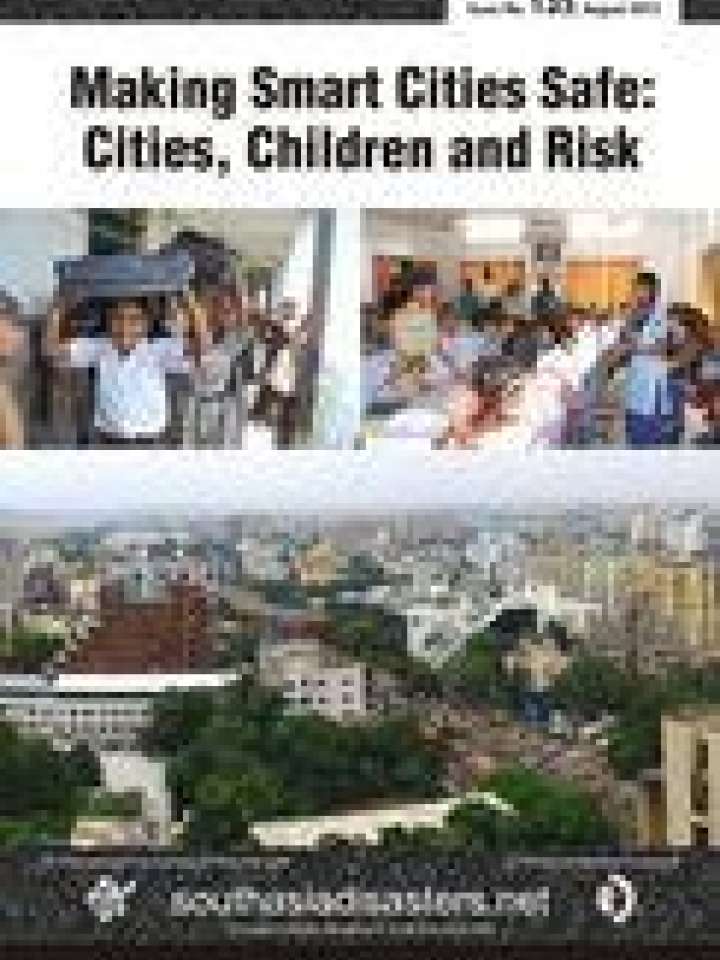Making smart cities safe: cities, children and risk
Southasiadisasters.net issue no. 135, August 2015:
“It is smart to be safe” said Mihir R. Bhatt at 6th Annual Conference of the International Society for Integrated Disaster Risk Management, IDRiM – TIFAC 2015 “Disaster Risk Reduction: Challenges and Opportunities for Sustainable Growth”. This was during the panel session on "Nepal: Beyond Disasters: Building Resilient Communities in Nepal?” What is true for a city is true for a child."
The Ministry of Urban Development (Government of India) has recently released a list of 98 cities under its flagship ‘Smart Cities Mission’. The objective of the Smart Cities Mission is to promote cities that provide core infrastructure and give a decent quality of life to its citizens, along with a clean and sustainable environment through the application of ‘Smart’ Solutions. As the plan to invigorate the future of India’s urban ecosystem goes underway, important concerns about the safety of children in these ‘smart cities’ need to be addressed.
This issue of Southasiadisasters.net is titled 'Making Smart Cities Safe: Cities, Children and Risk'. According to various estimates, there are 158 million children in the country, about 26% i.e. 41 million live in urban areas and 8 million of them in slums. Hitherto, urban planning in India has not been very responsive to the safety and development needs of children.
This issue's contents includes: (i) Urban Resilience and Rights of Children; (ii) Smart Cities: A Different View; (iii) Towards Smart and Resilient Cities in India; (iv) Urban Resilience and Rights of Children in Kolkata; (v) Development of Ahmedabad: What Worked?; (vi) Livelihood Recovery in Nepal: Key Issues and Challenges; (vii) City, Child and Risk in India: A view; (viii) Smart Cities and Climate Change Challenges and (ix) The Gujarat School Safety Week 2015.
This issue of Southasiadisasters.net highlights the necessity to make such needs of children intrinsic to the design of these safe cities.
Explore further
